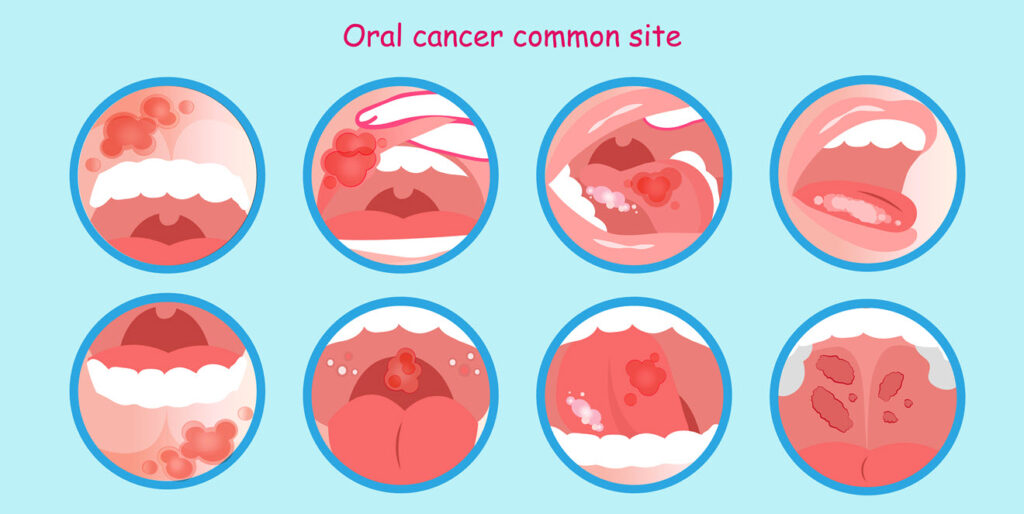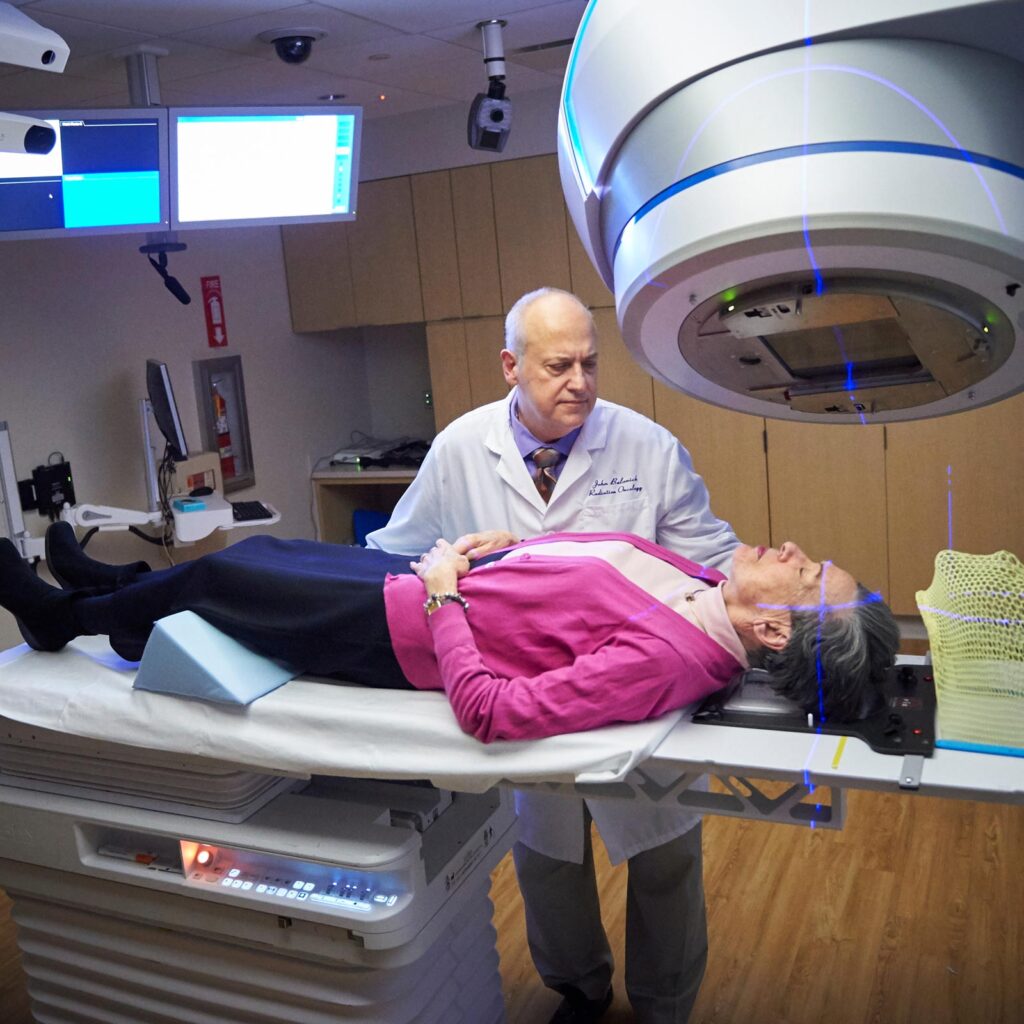Understanding Oral Cancer

Oral cancer is a serious condition that affects the tissues in the mouth, including the lips, tongue, gums, cheek lining, floor of the mouth, hard and soft palate, and even the salivary glands.
It’s a potentially life-threatening disease that requires early detection and prompt treatment to improve outcomes significantly.
The most common type of oral cancer is oral squamous cell carcinoma, which accounts for approximately 90% of all oral cancer cases.
While oral cancer can develop at any age, it is most frequently diagnosed in individuals over the age of 50, with men being more susceptible than women.
Importance of Oral Cancer Screening
Regular oral cancer screening is crucial for early detection of cancerous and pre-cancerous conditions in the mouth.
Many small but dangerous oral spots or sores might go unnoticed without professional examination.
Early detection through regular screening can significantly improve treatment outcomes and survival rates.
The five-year survival rate for early-stage oral cancers that are successfully treated can be as high as 94%, compared to less than 30% for advanced-stage cancers.
As part of your routine dental check-up, your dentist in Singapore will conduct a thorough examination of your entire mouth, specifically looking for signs of oral cancer.
This preventive measure has the potential to detect life-threatening conditions at an early, more treatable stage.
You might be interested: Health Screening in Singapore
Signs and Symptoms of Oral Cancer
While the following signs and symptoms can indicate the presence of oral cancer, they can also be caused by other conditions.
It’s important to consult with a healthcare professional if you experience any of these symptoms:
- Persistent mouth sores or ulcers that don’t heal within two weeks
- White or red patches in the mouth
- Abnormal lumps or growths in the mouth
- Unexplained bleeding in the mouth
- Difficulty or pain when swallowing, speaking, or chewing
- Persistent sore throat or feeling like something is caught in your throat
- Numbness or pain in the mouth, lips, or tongue
- Changes in your voice
- Persistent earache
- A lump in the neck (which may indicate spread to lymph nodes)
- Changes in the way your teeth fit together when you close your mouth
If you notice any of these symptoms persisting for more than two weeks, it’s essential to schedule a visit with your dentist or healthcare professional for an oral cancer screening.
This might help: The Ultimate Guide To Seeing A Dentist In Singapore
Risk Factors for Oral Cancer
Understanding the risk factors associated with oral cancer can help you take preventive measures and recognize the importance of regular screenings.
The primary risk factors include:
Tobacco Use
The use of tobacco in any form—cigarettes, cigars, pipes, or smokeless tobacco—significantly increases the risk of developing oral cancer.
Alcohol Consumption
Heavy alcohol consumption, particularly more than two alcoholic beverages daily, can considerably increase the risk of oral cancer. When combined with tobacco use, the risk is even higher.
Related article: Complete Guide to Fixing a Gummy Smile: Causes and Treatment Options
Betel Nut Chewing
Betel nut use, common in some Asian cultures, is associated with an increased risk of oral cancer.
Sun Exposure
Prolonged exposure to UV radiation from the sun increases the risk of lip cancer. Using sun protection products and limiting sun exposure can help reduce this risk.
Human Papillomavirus (HPV) Infection
HPV16 infection has been implicated in the rising number of young, non-smoking oral cancer patients.
Research suggests that in people under the age of 50, HPV16 may be replacing tobacco as the primary causative agent.
Poor Oral Hygiene
Maintaining good oral health through regular dental care can help reduce the risk of oral cancer.
Related article: White Spots On Teeth: Causes, Treatments, and Prevention
Other Risk Factors
- Chronic irritation from ill-fitting dentures
- Poor nutrition, especially diets low in fruits and vegetables
- Compromised immune system (e.g., patients on immunosuppressants or with HIV)
- Previous history of oral cancer
- Advanced age (most cases occur in people over 50)
Read more: Common Dental Problems in the Elderly: Symptoms, Prevention, and Treatment
The Oral Cancer Screening Process in Singapore

What to Expect During a Screening
An oral cancer screening is a visual and physical examination of your mouth conducted by a trained dentist or healthcare professional.
The screening process typically includes:
- Visual Examination: Your dentist will thoroughly examine the entire mouth, including the roof and floor of your mouth, tongue, lips, cheeks, throat, and face, looking for any irregularities such as discoloration, sores, or lumps.
- Physical Examination: The dentist will feel along your jaw and neck to check if your lymph nodes are normal. They may also feel or rub your jaw and ears for any lumps or lesions that could be concerning.
- Additional Tests: If your dentist identifies a suspicious area, they might recommend additional tests or refer you to an oral surgeon for a biopsy to determine if the suspicious site is cancerous.
Frequency of Screenings
Regular dental check-ups, typically recommended every six months, provide an excellent opportunity for oral cancer screening.
If you have risk factors that increase your likelihood of developing oral cancer, discuss these with your dentist so they can be more vigilant during examinations.
This might be helpful: The Complete Guide to Protruding Teeth: Causes, Complications and Treatment Options
Diagnostic Procedures for Oral Cancer
If your dentist identifies a suspicious area during screening, they may refer you to an oral and maxillofacial surgeon for further evaluation and possibly a biopsy to determine if the suspicious tissue is cancerous.
Types of Biopsies
Exfoliative Cytology
This procedure involves scraping cells from the lesion and placing them on a microscope slide for examination.
Incisional Biopsy
This is done through an excision, a surgical procedure where a small piece of tissue is removed for examination. The area is typically numbed with local anesthesia before the procedure.
You might like: Which Dental Clinic in Singapore Should You Consider? (Sort by Reviews)
Fine-Needle Aspiration
A thin needle is inserted into the lump, and a small tissue sample is extracted for examination.
After a biopsy is performed, the tissue sample is sent to a pathology laboratory for testing.
Histopathology tests will be conducted, and tissue slices will be examined under a microscope to determine if there is any pathology or disease at the site.
This will confirm the diagnosis and identify or rule out the presence of oral cancer or other pathologies.
Treatment Options for Oral Cancer in Singapore
Treatment for oral cancer depends on several factors, including the stage of cancer, the size and location of the tumor, and the patient’s overall health. The main treatment options include:
Surgery
Surgery is a standard treatment option for oral cancer, used to remove cancerous tissue.
The type of surgery performed depends on the size and location of the tumor and the stage of cancer.
In some cases, surgery might be the only treatment needed, but it often requires a combination with other treatments.
Radiation Therapy

Radiation therapy uses high-energy waves to kill cancerous cells. For early-stage oral cancers, radiation therapy might be the only treatment needed.
For more advanced cancers, it’s often used in combination with surgery or chemotherapy.
Chemotherapy
Chemotherapy uses drugs to kill cancerous cells. It can be administered before or after surgery, or it might be the only treatment received.
Chemotherapy is usually given in cycles, with each cycle consisting of a period of treatment followed by a rest period.
Multidisciplinary Approach
Oral cancer treatment often involves a multidisciplinary team, including an oral and maxillofacial surgeon, radiation oncologist, medical oncologist, maxillofacial prosthodontist, restorative dentist, speech and swallowing therapist, and dietitian.
This team works together to provide comprehensive care and rehabilitation.
Even after completing cancer treatment, patients often need to undergo months of rehabilitation as surgery can result in altered speech and swallowing.
Hence, speech and swallowing therapy, as well as regular dietitian reviews, are essential parts of the recovery process.
Prevention and Early Detection
Lifestyle Changes
The best way to prevent oral cancer is to avoid tobacco and limit alcohol consumption. Other preventive measures include:
- Avoiding betel nut use
- Using sun protection on your lips when exposed to the sun
- Maintaining good oral hygiene
- Eating a diet rich in fruits and vegetables, which may help prevent the development of potentially cancerous lesions
- Getting vaccinated against HPV
- Regularly examining your mouth for any changes
Importance of Regular Dental Check-ups
Regular dental check-ups are essential for early detection of oral cancer.
During these appointments, your dentist will perform a thorough examination of your mouth, which includes screening for oral cancer. If you haven’t been for a dental check-up recently, scheduling an appointment could be a life-saving decision.
Oral Cancer Statistics
- Head and neck cancer is the 6th most common cancer worldwide
- It was estimated that there were approximately 657,000 new cases of oral cancer diagnosed worldwide in 2020
- Approximately 330,000 people die from oral cancer each year globally
- Men are more likely than women to develop oral cancer
- The five-year survival rate for oral cancer varies widely depending on the stage at diagnosis
Seeking Professional Help in Singapore
If you notice any persistent changes in your mouth, it’s crucial to seek professional help promptly.
Early detection and treatment of oral cancer can significantly improve outcomes and prognosis.
In Singapore, dentists and oral health specialists are well-equipped to provide comprehensive oral cancer screening and treatment services.
Remember, a routine dental examination has the potential to detect life-threatening oral cancer at an early stage.
If you haven’t been for a dental check-up recently, contact a dental clinic today to receive expert preventive care and an oral cancer screening.
FAQ Section
What is oral cancer?
Oral cancer is a type of cancer affecting the tissues in the mouth, including the lips, tongue, gums, cheek lining, floor of the mouth, hard and soft palate, and even the salivary glands.
The most common type is oral squamous cell carcinoma, accounting for about 90% of all oral cancer cases.
It’s considered a serious condition that can become life-threatening if not detected and treated early.
What causes oral cancer?
Oral cancer develops when cells in the mouth undergo DNA mutations, causing them to grow uncontrollably and form cancerous tumors.
Several risk factors can increase the likelihood of developing oral cancer, including tobacco use, heavy alcohol consumption, betel nut chewing, HPV infection, excessive sun exposure (for lip cancer), poor oral hygiene, and certain genetic factors.
The combination of smoking and drinking alcohol significantly increases the risk compared to either habit alone.
How common is oral cancer in Singapore?
While specific statistics for Singapore alone may vary, oral cancer is a significant health concern globally.
Head and neck cancer is the 6th most common cancer worldwide, with approximately 657,000 new cases diagnosed annually.
In Singapore, as in many countries, oral cancer is more commonly seen in middle-aged and elderly individuals, with men being affected more frequently than women.
Regular screening is essential for everyone, regardless of perceived risk factors.
What are the early signs of oral cancer?
Early signs of oral cancer can be subtle but might include persistent mouth sores or ulcers that don’t heal within two weeks, white or red patches in the mouth, unexplained bleeding, difficulty or pain when swallowing or chewing, persistent sore throat, numbness or pain in the mouth or face, changes in voice, and lumps or thickening in the mouth or neck.
Many early-stage oral cancers are asymptomatic, which underscores the importance of regular professional screenings.
How is oral cancer diagnosed?
Oral cancer diagnosis typically begins with a thorough clinical examination by a dentist or healthcare professional. If they identify a suspicious area, they may refer you to a specialist for a biopsy, which involves taking a small sample of tissue for laboratory examination.
Three common biopsy methods are exfoliative cytology (scraping cells from the lesion), incisional biopsy (surgically removing a small piece of tissue), and fine-needle aspiration (using a thin needle to extract tissue from a lump).
If cancer is confirmed, additional imaging tests like CT scans or MRIs may be performed to determine the extent of the cancer.
How often should I get an oral cancer screening?
Regular dental check-ups, typically recommended every six months, provide an excellent opportunity for oral cancer screening.
These routine examinations allow your dentist to monitor any changes in your oral health and detect potential issues early.
If you have risk factors for oral cancer, such as tobacco use, heavy alcohol consumption, or a history of oral cancer, discuss these with your dentist, as they may recommend more frequent screenings.
What does an oral cancer screening involve?
An oral cancer screening involves a comprehensive visual and physical examination of your mouth and surrounding areas.
Your dentist will inspect your lips, cheeks, gums, tongue, floor and roof of your mouth, throat, and face for any abnormalities such as discoloration, lumps, or sores.
They will also feel along your jaw and neck to check for enlarged lymph nodes or unusual swellings.
The screening is typically quick, painless, and conducted as part of your routine dental examination.
What are the treatment options for oral cancer?
Treatment for oral cancer depends on several factors, including the stage of cancer, tumor size and location, and your overall health.
Common treatment options include surgery to remove the cancerous tissue, radiation therapy using high-energy waves to kill cancer cells, and chemotherapy using drugs to target cancer cells.
Often, a combination of these treatments is recommended.
Treatment is typically coordinated by a multidisciplinary team of specialists, including surgeons, oncologists, and rehabilitation therapists, to ensure comprehensive care.
How can I reduce my risk of developing oral cancer?
You can reduce your risk of developing oral cancer by avoiding tobacco in all forms, limiting alcohol consumption, avoiding betel nut use, protecting your lips from excessive sun exposure using SPF lip balm, maintaining good oral hygiene, eating a diet rich in fruits and vegetables, getting vaccinated against HPV, and having regular dental check-ups that include oral cancer screenings.
Early detection through professional examinations and awareness of the signs and symptoms of oral cancer can significantly improve treatment outcomes.
What should I do if I notice a suspicious spot in my mouth?
If you notice any unusual changes in your mouth that persist for more than two weeks, such as sores, white or red patches, lumps, or areas of numbness, schedule an appointment with your dentist or healthcare provider promptly.
Don’t wait for your next routine check-up. While many oral abnormalities are harmless, only a professional examination can determine whether a suspicious spot requires further investigation.
Early detection of oral cancer significantly improves treatment outcomes and survival rates.
Are oral cancer screenings covered by insurance in Singapore?
Coverage for oral cancer screenings can vary depending on your specific insurance plan in Singapore.
Many basic dental insurance plans cover routine dental check-ups, which typically include a basic oral cancer screening as part of the examination.
However, if additional diagnostic procedures like biopsies are required, coverage may differ.
It’s advisable to check with your insurance provider about the specific coverage details of your plan.
Regardless of insurance coverage, regular oral cancer screenings are a valuable investment in your long-term health.

